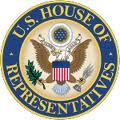 On April 6,the House Judiciary Subcommittee on Intellectual Property, Competition, and the Internet held a hearing this week on the enforcement of IP online. Titled “Promoting Investment and Protecting Commerce Online: Legitimate Sites v. Parasites, Part II,” the hearing aimed to get input on how best to structure legislation similar to last year’s Combating Online Infringement and Counterfeiting Act (COICA). Testimony was given by John Morten (U.S. Immigration and Customs Enforcement), Floyd Abrams (Cahill Gordon & Reindel, LLP), Kent Walker (Google), and Christine Jones (Go Daddy Group).
On April 6,the House Judiciary Subcommittee on Intellectual Property, Competition, and the Internet held a hearing this week on the enforcement of IP online. Titled “Promoting Investment and Protecting Commerce Online: Legitimate Sites v. Parasites, Part II,” the hearing aimed to get input on how best to structure legislation similar to last year’s Combating Online Infringement and Counterfeiting Act (COICA). Testimony was given by John Morten (U.S. Immigration and Customs Enforcement), Floyd Abrams (Cahill Gordon & Reindel, LLP), Kent Walker (Google), and Christine Jones (Go Daddy Group).
The hearing website contains links to all of their prepared statements, and to a webcast of the event. The witnesses were generally supportive of legislation similar to last year’s COICA, but they offered recommendations for the lawmakers to consider when drafting the actual bill.
John Morten, Director of U.S. Immigration and Customs Enforcement describes his agencies’ work with industry and foreign governments to curb piracy. He reported that Operation In Our Sites has taken down 101 websites that sell infringing materials since November 2010, and Operation Pangea III, which seized over $56.7 million worth of counterfeit medicines ordered online.
Kent Walker, Senior Vice President and General Counsel of Google, described the company’s actions to fight piracy online, both in partnership with content owners and through self-detection of sites selling counterfeits. Regarding upcoming legislation, Walker recommended that 1) “Policymakers should aim squarely at the ‘worst of the worst’ foreign websites without ensnaring legitimate technologies and businesses” 2) “New legislation should not alter common law secondary liability principles or undermine the DMCA… the DMCA strikes the right balance for search engines” 3) “Legislation must not interfere with the health and stability of the Internet,” and 4) “Policymakers should dismantle barriers to licensing to encourage greater proliferation of compelling legal offerings for copyrighted.”
Floyd Abrams, Senior Partner at Cahill, Gordon & Reindel, LLP, testified that COICA as introduced in the Senate last year “was consistent with the First Amendment.” Lawmakers crafting similar legislation for the current Congress should set a high bar for sites to be taken down (such as COICA’s language pertaining to sites “dedicated to infringing activities” or “primarily designed” for infringement); should aim for careful enforcement actions that only take down infringing materials; should “generally aim to apply already existing standards wherever possible;” should provide injunctive relief that is “limited to halting infringement and prohibiting future infringement online;” and should provide due process for those accused of infringement.
Catherine N. Jones, Executive Vice President and General Counsel of the Go Daddy Group described how her firm investigates and takes down sites selling IP infringing products. Her recommendations to the committee were to 1) “Direct complaints regarding domain names to registrars rather than registries,” 2) Direct complaints regarding illegal content total relevant members of the internet ecosystem, and 3) “Utilize DNS blocking instead of DNS filtering” to block sites.




